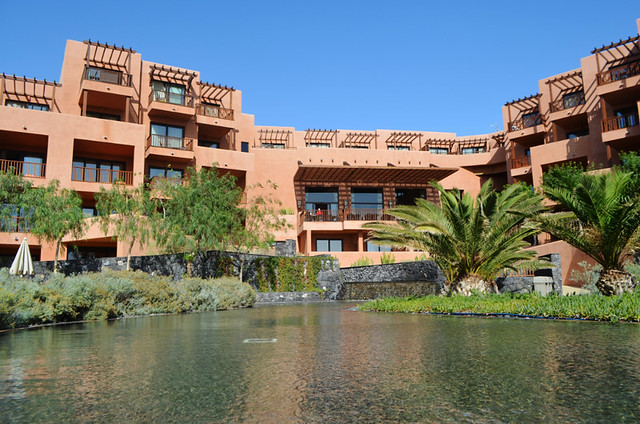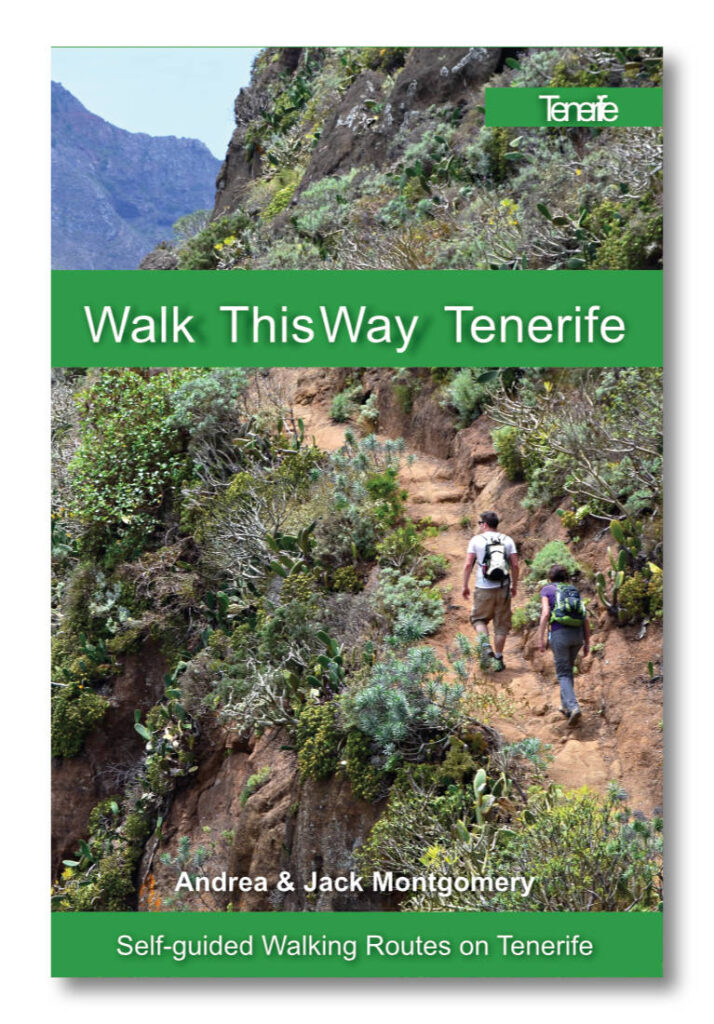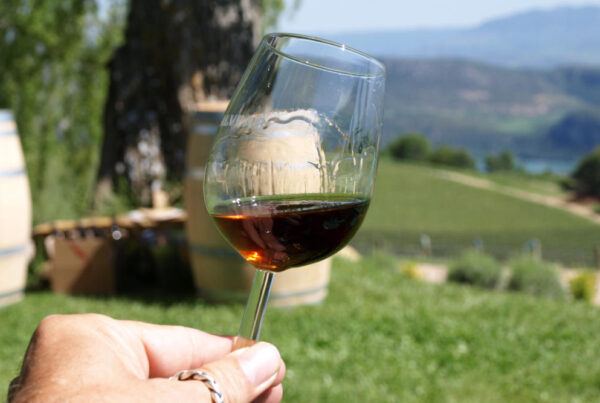This week, a picture of a 5-star hotel on Tenerife popped up on my Facebook memories. It was quite topical as it was of the hotel where the Keeley Hawes drama Crossfire was filmed. Seeing the image prompted a bout of mental wrestling about a question which regularly pops into my head. Is a significant amount of travel writing deceptive or just overly positive?
We stayed at the hotel a few years ago, reviewing it for a UK newspaper. I really liked the place – the room was one of the best we’d stayed in on the island; the hotel’s décor and architecture rang my bell – it had the feel of a Mexican hacienda, which fitted the South American vibe of the Canaries perfectly; and there was a fascinating little nature reserve attached. But the food was awful. I stood at the dinner buffet, despondent because I couldn’t see a single thing that appealed. That doesn’t happen with me and hotel buffets. It was as bland a selection as I’ve seen anywhere.
When Andy reviewed it, she gave it a deservedly glowing review, but slammed it for the food. But the editor wasn’t happy – either the food score went up or they wouldn’t publish the piece.
And there lies one of the dilemmas of travel writing.
It applies pretty much across the board. There’s a tendency for it to focus on just the positive.

Inside the kitchen of the chef considered the greatest in the world at the time, Ferran Adrià. Not something the average traveller would get to do.
Travel writing commissions
The review still made the hotel sound attractive, but it was giving potential guests a heads up that the food in the main dining room wasn’t up to scratch. For me, that’s what travel writing should be all about, giving an honest appraisal of destinations, hotels, restaurants etc.
But that isn’t always welcomed when the publication printing the appraisal/article is trying to sell holidays or attract advertising. Another factor pushing travel articles well into the ‘positive views only’ camp is, the only way most travel writers can afford to write about travel is by accepting press trips where all expenses are covered. We’ve done a few of these and they can be wonderful. You get access to people and places that other travellers don’t. But there are downsides. You generally only get to do and see what the body paying for the trip wants you to do and see. That often means everybody writes about the same things. Sometimes the experience is too short-lived, more of a taster. And, because everything is laid on a plate for you, it is difficult to criticise. I’ve never heard of a situation where any writer was asked to only write positive things, but there is a sort of unwritten obligation. In reality, few writers would put the boot into a destination that has welcomed them with open arms and plied them with food, drink, and interesting experiences.

Inside a guachinche on Tenerife. These unique, pop-up eating places can’t afford to pay to be on Tourist Board lists, so often don’t get a mention in travel articles as a result.
Influence of others in travel writing
We did have a situation once where a representative of a tourist board got a bit carried away with her position and declared ‘I’ll decide what anyone writes about my island.’ The article, about a gastronomic odyssey, was a deservedly positive one, but the tourist board rep demanded final say on what establishments were included. The editor of the magazine the article was to be published in gave her short thrift.
Oh, and I’ve just remembered another tourist board which was unhappy with the mention of establishments which didn’t pay a subscription to them. So, there are times when destinations can try to influence. We generally resist this, especially when writing for our own websites where we don’t accept advertising, so nobody has financial leverage. It doesn’t always go down well. On one occasion we had a representative from a tourist board threatening to come round to our house to take us to task for something I wrote.
When writing for others, it’s mostly a case of he/she who pays the piper and all that. Recently we had a remit which wanted the travel piece to be along the lines of another article I’d written, but which also made it clear that we were to keep things positive. It wound me up. Mainly, because our default stance is positive anyway. Our travel experiences have overwhelmingly been good ones. Negative experiences are the minority, and usually related to travel itself (I have come to despise the unnecessary authoritarian attitude in some airports). I couldn’t see anything in the article referenced which struck me as being negative. Honest? Yes, hopefully helpfully so. But not negative.
Deceptive or not?
And that’s where the line can be blurred. I want to write travel articles that are honest, that give readers a true representation of a destination, not one where all the graffiti has been scrubbed away or unsightly parts hidden behind a screen. I don’t want to produce the travel writing equivalent of pre-watershed Sunday night TV.
Mostly, I don’t believe there is widespread deception as such in travel writing. But I also think a significant amount of it isn’t completely honest.

The small nature reserve behind the hotel on Tenerife where Crossfire was filmed. The writer said they wanted to imply it was a smaller island, like Fuerteventura … the second largest Canary Island.
Incidentally, the makers of Crossfire deliberately fooled viewers into thinking it was set on one of the smaller Canary Islands rather than Tenerife because, for the sake of the story, they needed a location where there wasn’t a sizeable police force that could respond quickly.
But that’s fiction. You can, and should, do what you want where fiction is concerned.














